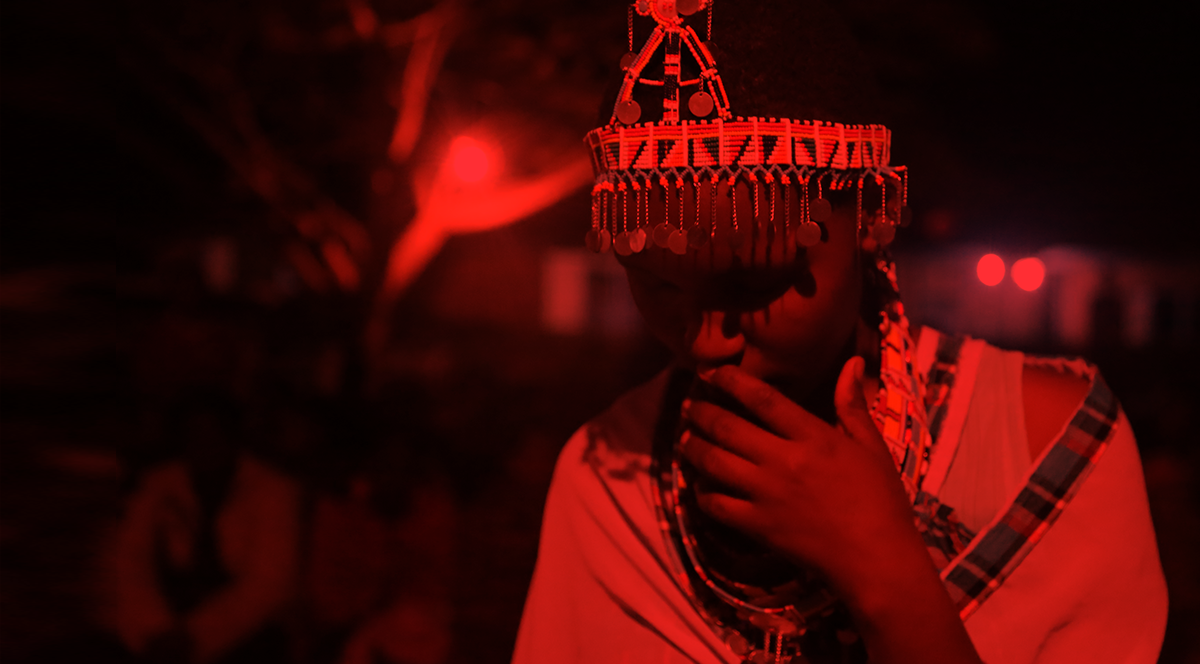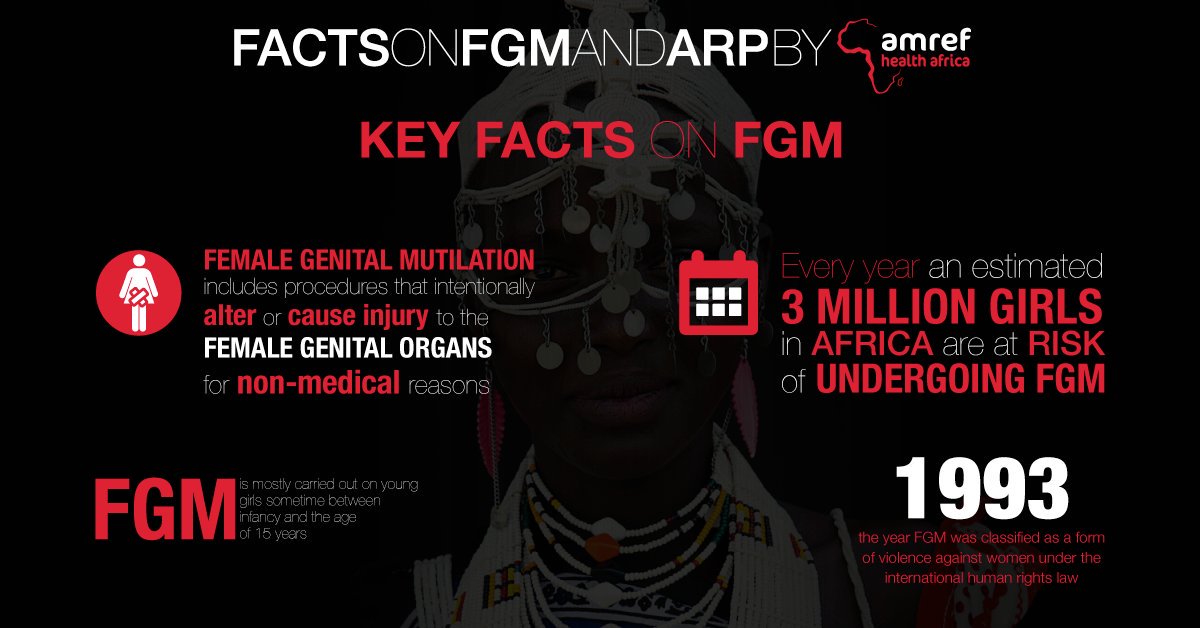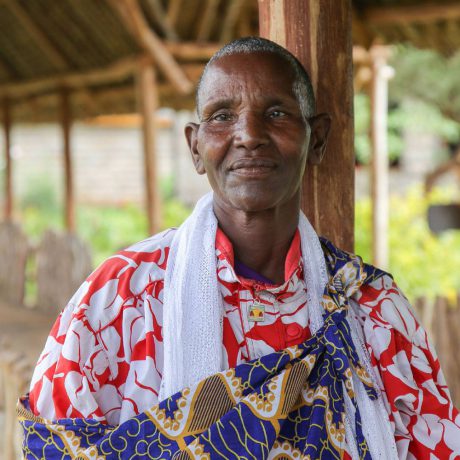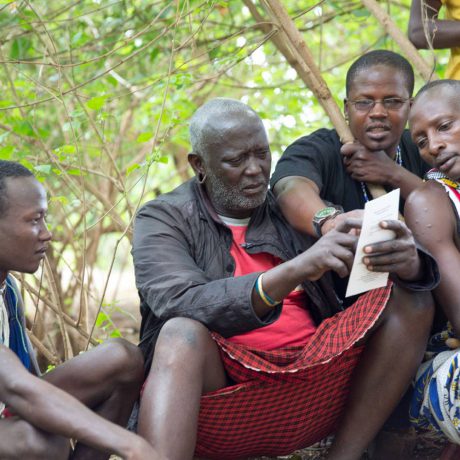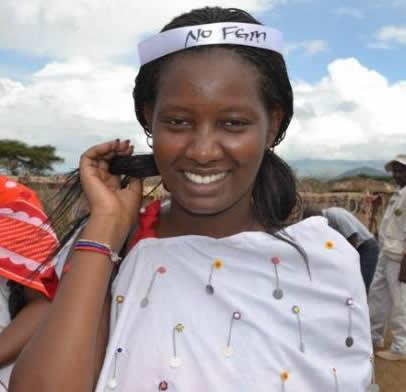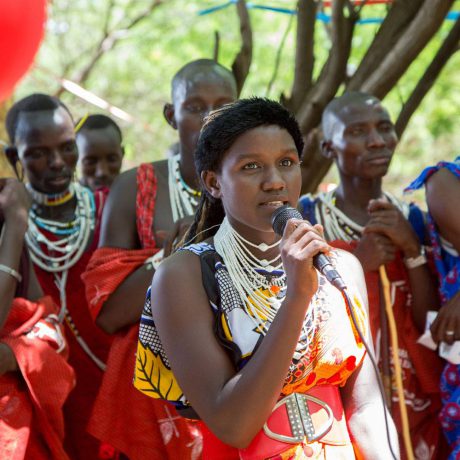It is estimated that between 100 and 140 million girls and women currently live with the most consequences of FGM, most of them in 28 African countries
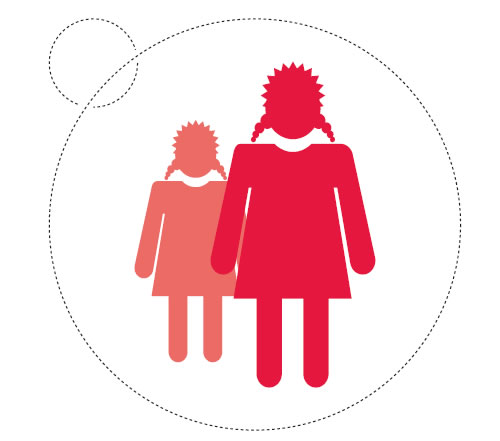
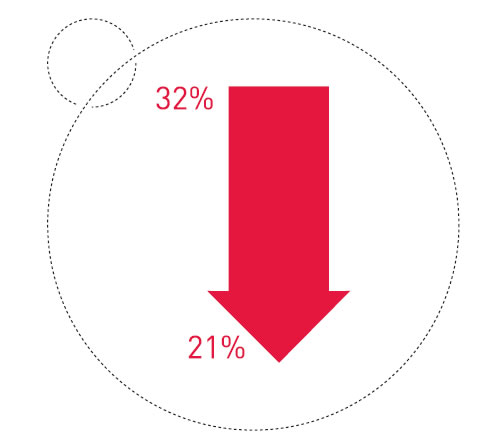
FGM in Kenya has been on a decline (32% in 2003 and 21% in 2014)
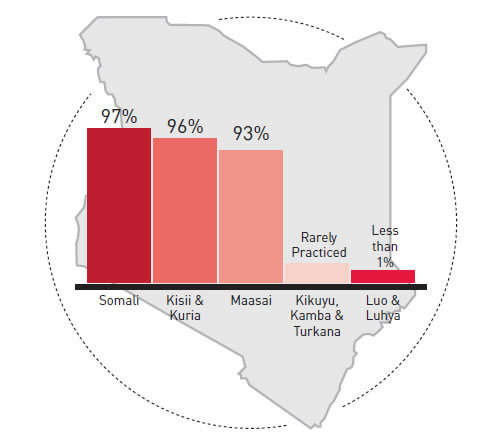
Prevalence has remained highest among the Somali (97%), Kisii (96%), Kuria (96%) and the Maasai (93%), relatively low among the Kikuyu, Kamba and Turkana, and rarely practiced among the Luo and Luhya.
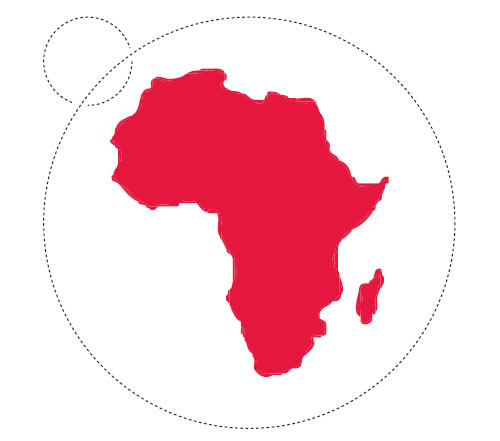
In Africa, 3 million girls face the risk of undergoing FGM every year
Campaign Objectives
To build a community of partners who want to protect girls from FGM.
Raise funds to support the alternative to FGM initiative by sponsoring ONE GIRL for Kes. 5000.
Why FGM?
In Kenya; 21% of girls aged 15 to 49 are at risk of Female Genital Cutting with counties like Samburu having prevalence rates as high as 86% and Kajiado 78%. Amref Health Africa in Kenya has been saved and graduated over 10,000 girls.
Alternative Right of Passage
ARP is aimed at ending FGM. It is characterized by two days of lessons on Maasai/Samburu values and traditions, sexual health issues, and life skills that culminates in a graduation ceremony to symbolize transition to womanhood without undergoing the harmful cut.
The whole community i.e. women, elders, religious leaders, and the local administration are involved.
The girls are allowed to stay in school to escape health complications brought by FGM.
Key Messages
FGM violates the rights of girls.
FGM can cause severe bleeding, infection, infertility and death.
FGM limits girls’ life chances, often taking them out of education and into forced marriage.
ARP is a holistic approach that involves the whole community i.e. girls at risk, women, elders, religious leaders, and the local administration are involved.
Over 10,000 have been graduated and have said No to FGM.
Personal Stories
10,000+ girls transitioned to womanhood through ARP*, without the cut
